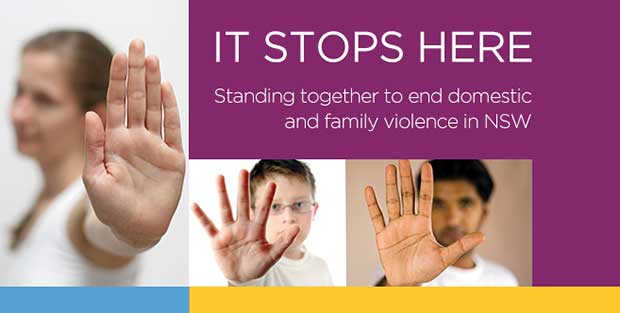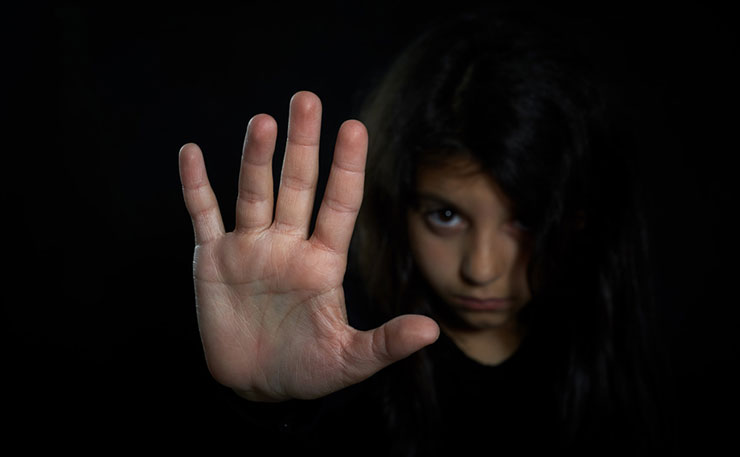Violence against women features almost every day in the media. This is a good thing.
It is a good thing because the media, the public, and our politicians have finally begun to realise the extent and the horror of gendered violence in Australia.
But for women who are, or have been, victims of domestic violence – this is not news.
We are not witnessing a sudden ‘epidemic’ of domestic violence. Instead, it is the ongoing consequence of deep inequity in our society that results in men feeling that they have the right to enact psychological, emotional, financial, sexual and physical abuse against women.
For years there has been important and effective work done to prevent domestic violence and provide services to people experiencing domestic violence.
In NSW, we have had almost 20 years of the Women’s Domestic Violence Court Advocacy Program. The service helps women navigate the complex and often intimidating court system to ensure that they receive adequate legal protection when escaping violence, and that their welfare needs are met.
We also have excellent domestic violence-specific counselling services, and many proactive and passionate police working as Domestic Violence Liaison Officers on the frontline. And, until very recently, we had a strong women’s refuge sector.
Yet despite the existence of these supports, women continue to be murdered by men they should be able to trust. Despite concerted efforts across many fronts to address domestic violence, many women have continued to fall through the cracks, and have had to face domestic violence alone and isolated.
Seeking help is often not straightforward. Women may have their use of technology monitored; they may have no way of leaving the house to attend appointments with services; and sometimes women don’t name their lived experience as domestic violence and aren’t aware that help is available.
Sometimes families are connected with services, but each service only has part of the picture and so a full understanding of all the factors contributing to a risk of familial homicide may never be put together.
There is a lot of discussion around what should be done to end violence against women, and to stop the alarming rate of domestic violence homicide in Australia.

I believe we are beyond the point of discussion. It is now 12 months since NSW introduced It Stops Here: Safer Pathway, part of a suite of family and domestic violence reforms to address these very issues.
I can say without equivocation, this new system is working.
I am the Coordinator of the Waverley Local Coordination Point, which is hosted by Redfern Legal Centre’s Sydney Women’s Domestic Violence Court Advocacy Service.
In the last 12 months since this program was launched in the Waverley area, we have seen some incredible results for women.
Now, every time NSW Police attend an incident of domestic violence, they conduct a risk assessment with every victim and an automatic referral is made for support services to a Local Coordination Point (LCP). Within one working day of receiving the referral, a social worker from the LCP contacts every single victim and connects her with a range of support services.
Through the introduction of Safety Action Meetings (SAMs) coordinated by the LCP, government and non-government agencies and support services meet to discuss the most serious threat matters.
During these meetings, vital information is shared about a woman’s situation in order to address the serious threat to the woman’s life, health and wellbeing, and that of her children. These changes are significant.
Prior to the introduction of legislation that allows information sharing in serious threat domestic violence matters, a service may be working with a woman but only have certain information, missing out on crucial details such as the criminal history, drug and alcohol use, or mental health issues of the person choosing to use violence, all of which significantly contribute to the risk of domestic violence homicide.
With the introduction of Safer Pathway, it is now easier for victims of domestic violence to find support, and easier for agencies working with victims of domestic violence to see the whole picture of risk to a woman or family, minimising the risk of future violence.
This is the innovative, coordinated and consistent response to domestic violence that advocates across Australia have been calling for.
Safety Action Meetings have resulted in some important outcomes including: the rapid rehousing of clients; locks being changed and safety audits completed within hours; urgent parole revocations of dangerous perpetrators; the cessation of harassing phone calls and letters to women from inside prison; connecting women with specialist domestic violence counseling; and supporting women to relocate within the private rental market, to name just a few.
Feedback from women assisted by the new system has been overwhelmingly positive. Women have told us they feel supported, informed and that without the contact from our service they may not have had the courage to take action.
This new system is about working together and making sure that all the resources available are being utilized to assist victims of domestic violence to minimize the threat to their safety.
So what is needed going forward?
12 months on, there are now six Local Coordination Points and Safety Action Meetings operating across NSW. The NSW Government’s plan is for Local Coordination Points to be rolled out across NSW over the next three to five years.
I welcome this week’s announcement by our new Prime Minister of a significant injection of funding into domestic violence prevention and service delivery.
Through the introduction of Safer Pathway, NSW is leading the nation in the response to domestic violence. Let’s see the full and rapid roll out of this innovative program across the state and let’s hope that other states follow suit.
So what can each of us do? Shame and secrecy are what allows domestic violence to continue at such alarming rates in our society. We must continue to talk about domestic violence to our friends, families and communities until there is no more shame and secrecy.
Journalists – keep reporting on domestic violence.
Politicians – do not let domestic violence slide into the issue of yesterday until we have made significant progress.
We must continue to shine a light on domestic violence.
This article focuses on violence against women, due to the Sydney Women’s Domestic Violence Service being a women specific service. Safer Pathway supports both men and women who experience domestic violence. Male victims are assisted by Victims Services NSW.
Do you need help?
• 1800 Respect (1800 737 732) 24 Hours
• Domestic Violence Line 1800 65 64 63
• If you feel unsafe always call 000 for immediate assistance.
* Sophie Farrell is a Social Worker and the Coordinator of the Waverley Local Coordination Point and the Waverley Safety Action Meeting.
Donate To New Matilda
New Matilda is a small, independent media outlet. We survive through reader contributions, and never losing a lawsuit. If you got something from this article, giving something back helps us to continue speaking truth to power. Every little bit counts.




